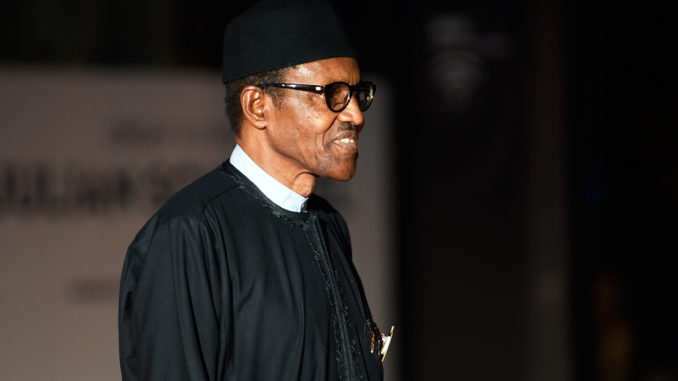
PRESIDENT Buhari has deliberately upped the ante on corruption in this campaign because he wants to make next month’s presidential election all about graft. His decision last week to suspend and replace the Chief Justice of Nigeria, Walter Onnoghen, on allegations of corruption was calculated to escalate the issue of graft in this election and upend his main opponent, Atiku Abubakar and his party, People’s Democratic Party, PDP. But in seeking to outsmart his opponents and win next month’s polls, Buhari is abusing his incumbency and trampling on the rule of law in a way that risks undermining the credibility of the entire elections.
Last year, President Buhari said that “Rule of law must be subject to the supremacy of the nation’s security and national interest”. I knew that the real test of how the derogatory statement on the rule of law played out would be his handling of this year’s elections. Surely, if national interest, as defined by a president, could trump the rule of law, then nothing, not even democracy, is sacrosanct.
Some criticisms of the Chief Justice’s suspension have focused on its constitutionality, that is, whether the president has the legal power to suspend him. But the issue goes beyond legality. The rule of law is as much about process as it is about substance. Of course, if the Chief Justice is corrupt, he can’t be above the law. But assuming the president has the power to remove him, then the relevant issues that could affect the legitimacy of the decision are process, timing and motives. President Buhari’s action failed those tests.
First, the process was flawed. For a president who relishes being called “Baba go slow” and who always had to be dragged kicking and screaming before suspending members of his own government accused of corruption, Buhari’s haste in acting, within days, on the Chief Justice’s case rightly raised concerns about procedural fairness. Allegations of corruption against a country’s Chief Justice would, in most serious democracies, follow structured and appropriate investigative and disciplinary procedures, rather than dealt with arbitrarily by the president. Buhari said he acted on a court order. Really? But how many court orders has he ignored? Picking and choosing which court order to obey smacks of the politicisation of justice
And what about the timing? Why, for goodness sake, in the middle of a crucial election? Why not a year ago, or even before Walter Onnoghen was made the substantive Chief Justice? How many countries would appoint a chief justice without thorough checks on his or her background, including financial affairs? My guess is that whatever secret information the Buhari government has against Justice Onnoghen, it had it at least a year ago but decided to wait until the election to detonate the “bomb” for maximum impact to raise the stakes on corruption. But for what purpose? Well, that brings us to Buhari’s motives.
As I said earlier, President Buhari’s action was designed to make the upcoming election all about corruption. Indeed, as his party, All Progressives Congress, APC, said last week, “This election is a referendum on corruption and integrity”. Elections are normally a referendum on the incumbent, but the APC is cleverly, with premeditated escalation of the corruption issue, making it a referendum on their opponents’ integrity. The APC’s slogan “Don’t let the treasury looters come back to power” is a powerful one that’s likely to resonate with ordinary Nigerians who believe Atiku and the PDP are weak on graft.
A study by three Canadian scholars on election campaigns shows that an incumbent with a poor record of achievement can successfully redirect voters’ attention away from his failure by framing the issues in an election campaign to undermine the credibility of the opposition. That’s what Buhari is doing. The president is not campaigning on his record because he has failed on the economy, on security and, despite his moral indignation, on corruption, which is present in his party and government. But Buhari still has a reservoir of personal goodwill on corruption, and he is using the integrity card mercilessly against Atiku and PDP, who are widely perceived to be weak and vulnerable on corruption. And, of course, they are!
Recently, Eurasia, the international consulting group, said that, as president, Atiku “would focus on enriching himself and his cronies”. But instead of confronting the negative perceptions, Atiku and his allies are feeding them. In a recent interview, he said that, if elected, “I am going to enrich my friends”, and one of his key allies, Buba Galadima, told a newspaper that, “Even if Atiku breaks into CBN, we will make him president”. With such reckless statements, why wouldn’t the negative perceptions persist. Add to that the toxic legacy of PDP’s 16 years in power, associated with widespread corruption.
To be sure, Buhari is right to attack Atiku and PDP on corruption. But trampling on the rule of law to escalate the issue or preventing businesses, through intimidation, from supporting Atiku’s campaign, as rumoured, while being funded by businesses and bribing voters with TraderMoni is a blatant abuse of incumbency. Buhari should fight fair, not dirty!
END

Be the first to comment